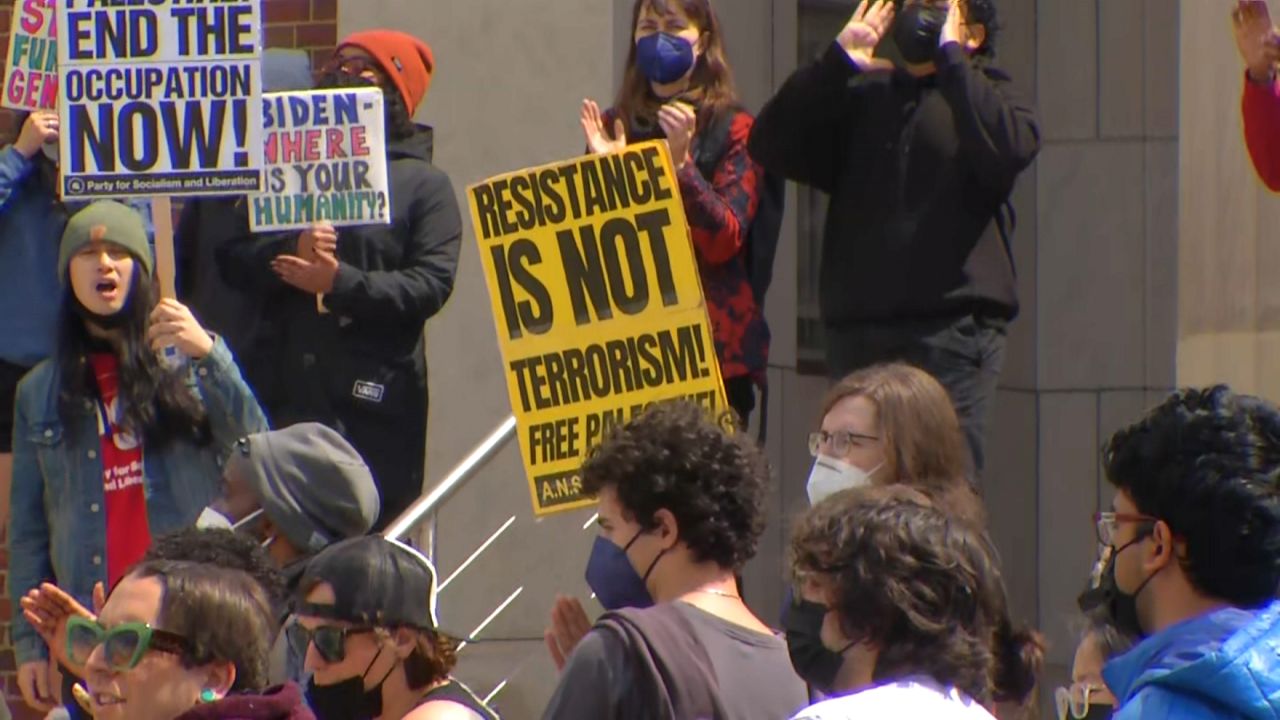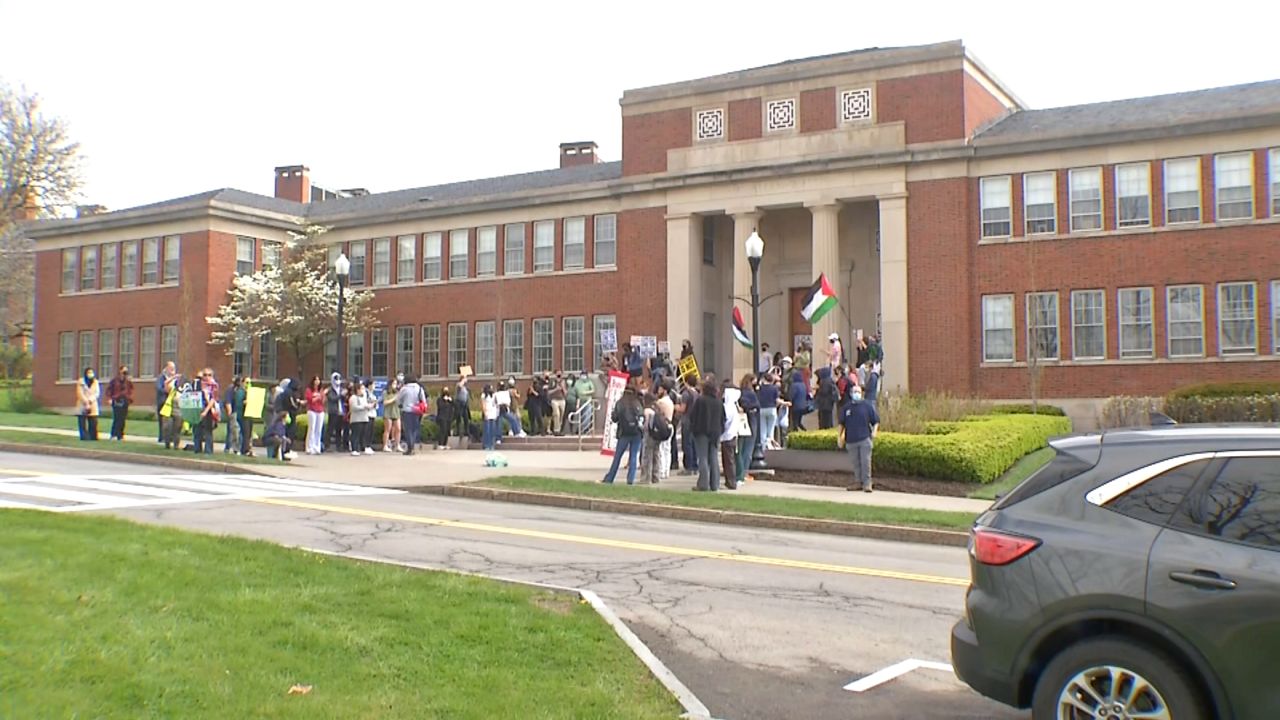Sarah C. Mangelsdorf, president of the University of Rochester, released a statement Thursday on the resolution of Wednesday's protests, saying "students will not face any punishment for their "peaceful and respectful behavior" during the sit-in" and that representatives from the student protesters will be allowed to give a presentation at an upcoming Faculty Senate meeting:
Dear Members of the University Community,
I want to provide you an update on the events from the last 24 hours and also to reinforce principles that have guided me over the last few months.
As we all know, our University is among the many across the country that have seen campus turmoil since last October. As an institution with global impact, we reflect the intellectual and academic vitality found all over the world as well as the heartrending conflicts that erupt between peoples. I have remained steadfast to many University stakeholders about my perspective of the importance of universities in times of conflict.
We are a stronger community when we pursue ideas honestly and respectfully, and we have supported our student life leaders in their efforts to work with student protesters to make sure their concerns have been heard. While I recognize that this is not always a smooth and easy endeavor, I have asked leaders to uphold our values as best as possible in the face of unprecedented events.
On Wednesday, a small group of students entered Wallis Hall to begin a sit-in as part of an ongoing effort to demand that the University take specific steps in response to the conflict in the Middle East. A larger group of protesters remained outside of Wallis Hall in support of the group of 15 to 20 students inside the building. The students were peaceful and chose not to engage in acts that we have seen at other institutions throughout the last few weeks.
We deployed our incident response team to manage the situation and we took measures to minimize the campus disruption, ensure campus safety, and communicate with the students occupying the first floor of Wallis Hall. Although I know some of you were impacted by the additional security measures, I appreciate your patience and I want to thank everyone for continuing to see to the business of the University.
Throughout this academic year, we recognized that students have a right to express themselves in accordance with our policies regarding the time, place, and manner for campus expression. Many members of our University community have shared with me that they supported the efforts of the protesting students, and many have said that we should not allow some of the activities that we’ve seen. I commend our University community for engaging thoughtfully on this issue. Our challenging goal throughout the academic year has been to protect the safety and security of our community by working to de-escalate sometimes tense situations.
Throughout the day on Wednesday, we worked diligently to find a path forward, including having conversations with protest leaders to de-escalate the situation. I want us to continue to engage with our students while also considering the impact that such events have on our greater University community. I sought to find a peaceful resolution in this challenging time and relied on key faculty and administrative leaders to assist in this effort, which ultimately resulted in a resolution based on respectful conversation and exchange of ideas.
At approximately 6:30 p.m. Wednesday, the students inside Wallis Hall agreed to leave the building without incident, remove their encampment on Eastman Quad by Monday ahead of final exams, and refrain from signage and posters that we identified as antisemitic and inflammatory. The students will not face any punitive measures due to their peaceful and respectful behavior during the sit-in. The Faculty Senate agreed to have representatives from the student protesters give a presentation at an upcoming Faculty Senate meeting. The Faculty Senate is a self-governing body and is free to discuss whatever topics they want relevant to the University’s academic activities. Senate resolutions can serve as recommendations to be considered by the University and Board of Trustees. If the students involved meet all the agreed-upon conditions, I have asked Student Life to lift the social bans that were imposed on protesting students.
These are challenging times for higher education and for the world at large, but I do believe in our community and our ability to learn from one another and continue to be ever better.
Sincerely,
Sarah C. Mangelsdorf
President
G. Robert Witmer, Jr. University Professor







